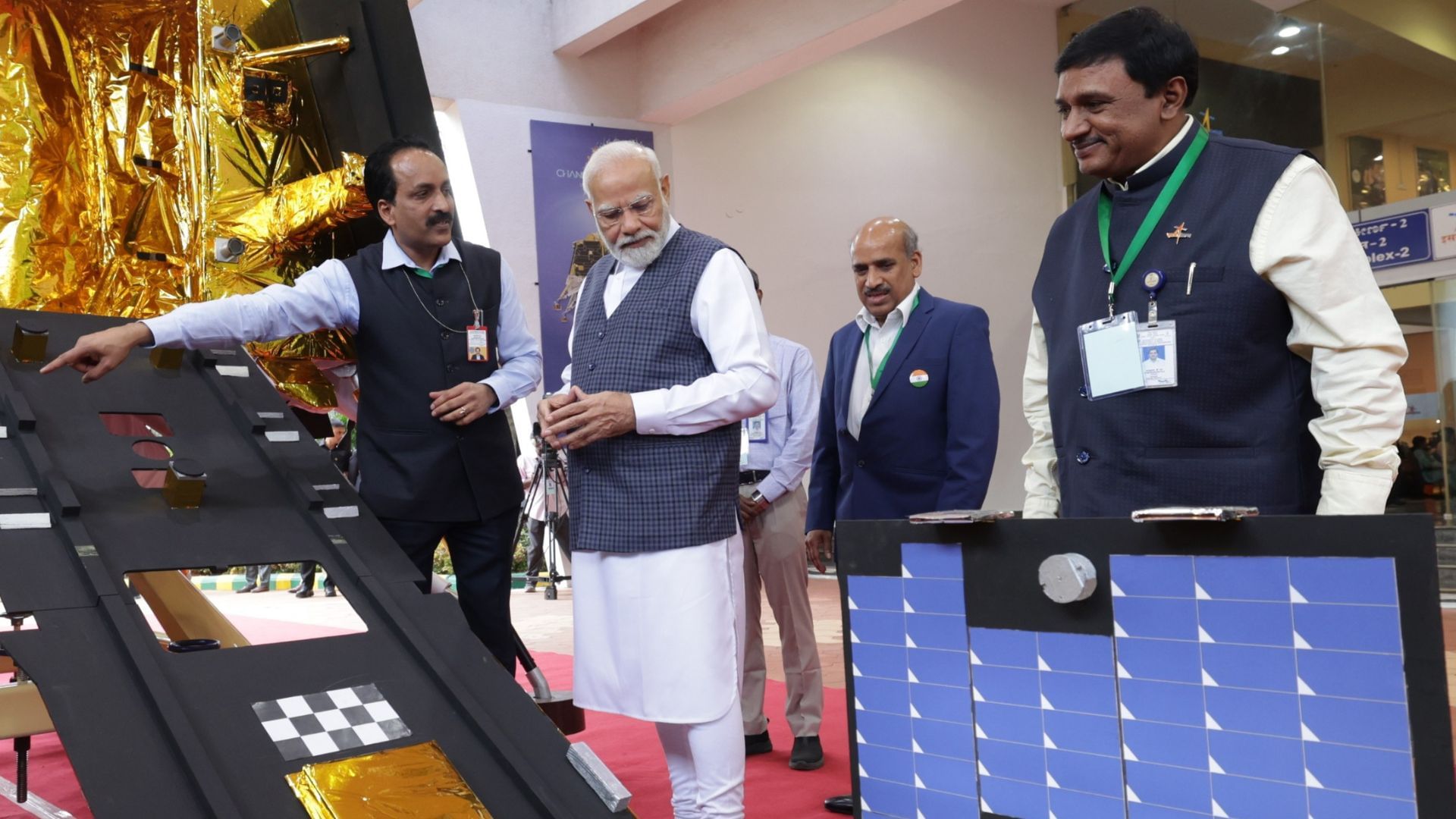New Delhi: Over the past 11 years, since Prime Minister Narendra Modi assumed office, India has leapfrogged ahead in its space journey, with planetary science missions to the Moon and Mars, and the formulation of an ambitious roadmap for the Gaganyaan human spaceflight programme, the assembly of the Bharatiya Antariksh Station by 2035, leading up to a crewed mission on the Moon by 2040, and then go on to assemble a Moon Base by 2047. After PM Modi assumed office, the press conferences started taking place in Delhi as against ISRO headquarters in Bengaluru. PM Modi also ushered in an era of Indian space diplomacy with the South Asia satellite.

PM Modi being presented with the first images from the Mangalyaan mission on 25 Sep, 2014. (Image Credit: PM Modi).
This satellite, launched by the GSLV-F09 flight in June 2017 was entirely the brainchild of PM Modi. Initially Pakistan was also included in the mission, then called the SAARC satellite, but Pakistan decided to pull out, after which the mission was dubbed the South Asia Satellite. The satellite was developed and deployed in an accelerated timeframe, providing communications services to Afghanistan, Nepal, Bhutan, Bangladesh, Sri Lanka and Maldives, apart from India. When Bhutan asked for additional transponder capacity, India obliged with the launch of the dedicated India-Bhutan satellite in November 2022, with the PSLV-C54 mission.
Throwing open the doors to space
Under PM Modi, ISRO has increased the participation of the private sector, as well as self-reliance in the domain, with a steady increase in capabilities. In June 2020, the Union Cabinet led by PM Modi institutionalised the Indian National Space Promotion and Authorisation Centre (IN-SPACe), a single window clearing agency for all operations in the space domain from India. A year later, in October 2021, PM Modi launched the Indian Space Association (ISpA), an industry forum where private space companies could voice their aspirations and concerns. ISRO has also boosted public-private partnerships, is handholding and providing support to New Space startups across the country to demonstrate and test their hardware, and is looking to outsource the manufacturing of rockets entirely to the private sector.
